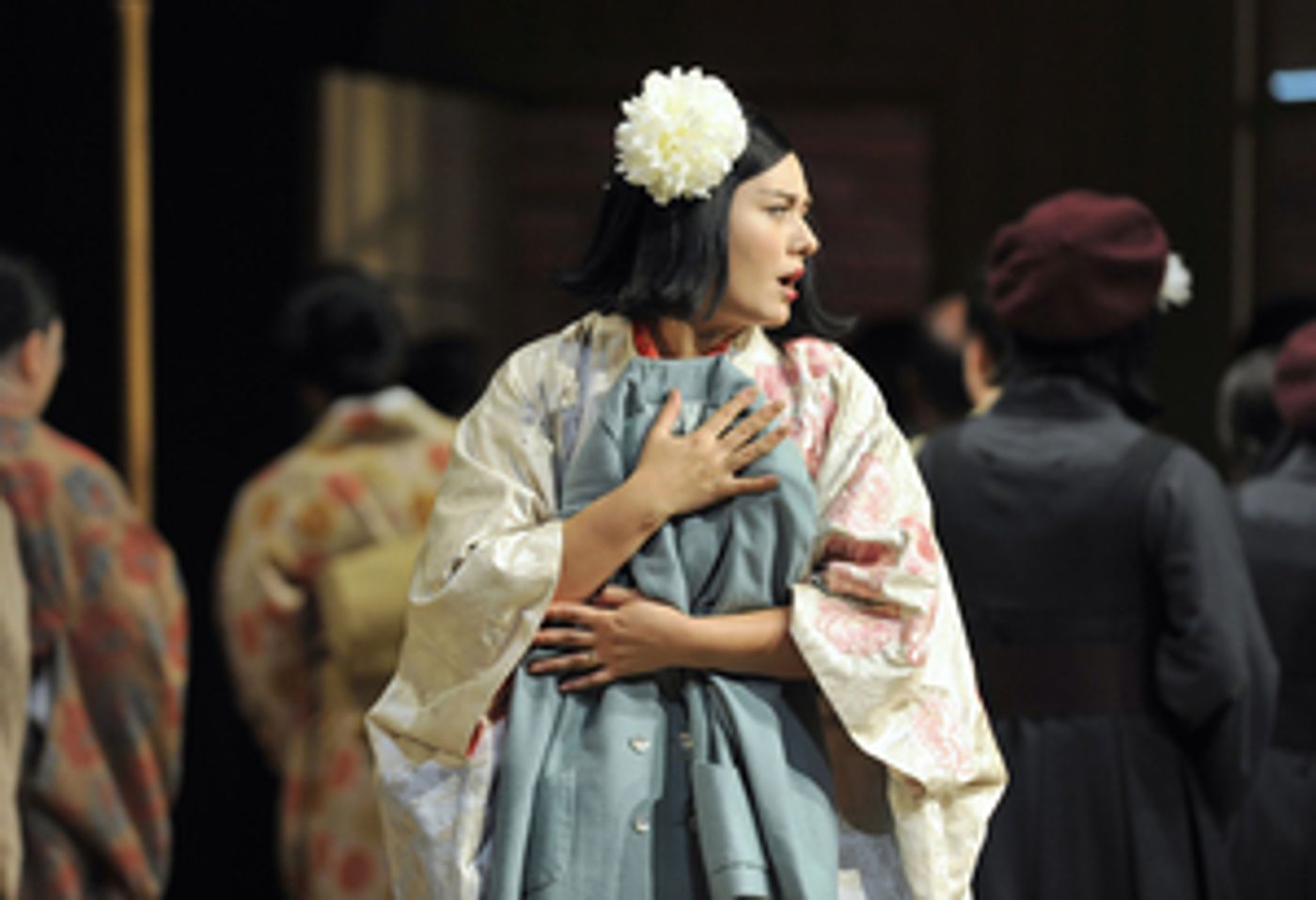Review: MADAMA BUTTERFLY, Glyndebourne on Marquee TV

![]() It took until 2018 for Glyndebourne to stage Puccini's Madama Butterfly after touring with it in 2016. Puccini's luscious score transports the audience to a world full of Japanese cherry blossom where a beautiful young girl pines for the man who has left her. However, it remains deeply problematic.
It took until 2018 for Glyndebourne to stage Puccini's Madama Butterfly after touring with it in 2016. Puccini's luscious score transports the audience to a world full of Japanese cherry blossom where a beautiful young girl pines for the man who has left her. However, it remains deeply problematic.
A 15 year-old Japanese girl Cio-Cio-San (Butterfly) is married off to Pinkerton, an American naval officer, through a sordid marriage agency. Believing her marriage is legitimate, she rejects her Buddhist faith for Christianity, causing rejection from all her friends and family. She has a son and after waiting three years for Pinkerton to return to her, she finds he has married an American and wants to take his son back with them for a better life. Butterfly agrees and then kills herself to save her son from the pain of rejection.
Annilese Miskimmon's version seeks to address some of the issues. Set in the 1950s, Miskimmon works with designer Nicky Shaw to take us to a time when the War Brides Act allowed servicemen working abroad to take foreign brides back to America. The western exploitation of vulnerable women as a theme is impossible to avoid, sometimes laid on with a trowel as Pathé news reels are played showing the life that Japanese women could look forward to in America. It is not subtle, but makes a valid point.
Miskimmon transports the first act to Goro's seedy marriage bureau where American naval officers queue up past a tattoo parlour to choose incredibly young Japanese brides. These are cold transactions, not sentimental. When three years have past, we see Butterfly at home wearing a modern tailored suit, surrounded by copies of Life magazine, embracing all things American in the hope of her eventual transfer to the life she was promised.
Moldovan soprano Olga Busuioc's Butterfly takes a little while to warm up, but eventually inhabits the tragedy of the character. She shows a very convincing change from demure and shy child-bride to a stronger and more world-weary young woman. It is a challenging part to sing and she gives a particularly strong and sincere version of 'Un bel dí', deeply touching in demonstrating how convinced she is that Pinkerton will return to her. It lacks the sentimentality and passivity of the version sung by many performers, with power and determination more reminiscent of the part of Tosca.
As Pinkerton, Joshua Guerrero's tenor is not quite strong enough to cope with every part of the role, but is suitably lightweight and unsympathetic in character. Carlo Bosi's sharp-suited Goro is slimy and ruthless and Michael Sumuel seemed to struggle a little in the role of Sharpless.
It is American mezzo Elizabeth DeShong who is the standout as maid Suzuki. Her beautiful performance is complimented perfectly by her excellent acting. One of the most touching moments is when her trio with Sharpless and Pinkerton, when Pinkerton returns to take his son back to America; DeShong is heartbreaking as she watches helplessly as the tragedy unfolds.
The music remains as soaringly beautiful as ever. Puccini is a master of tragedy and Omer Meir Wellber draws delicate and emotional sentiment from the London Philharmonic Orchestra. The Glyndebourne Chorus is also in wonderful form; 'The Humming Chorus' alone is enough to touch the hardest of hearts.
Madama Butterfly from Glyndebourne is available on Marquee TV
Photo Credit: Robbie Jack
Reader Reviews
Videos

